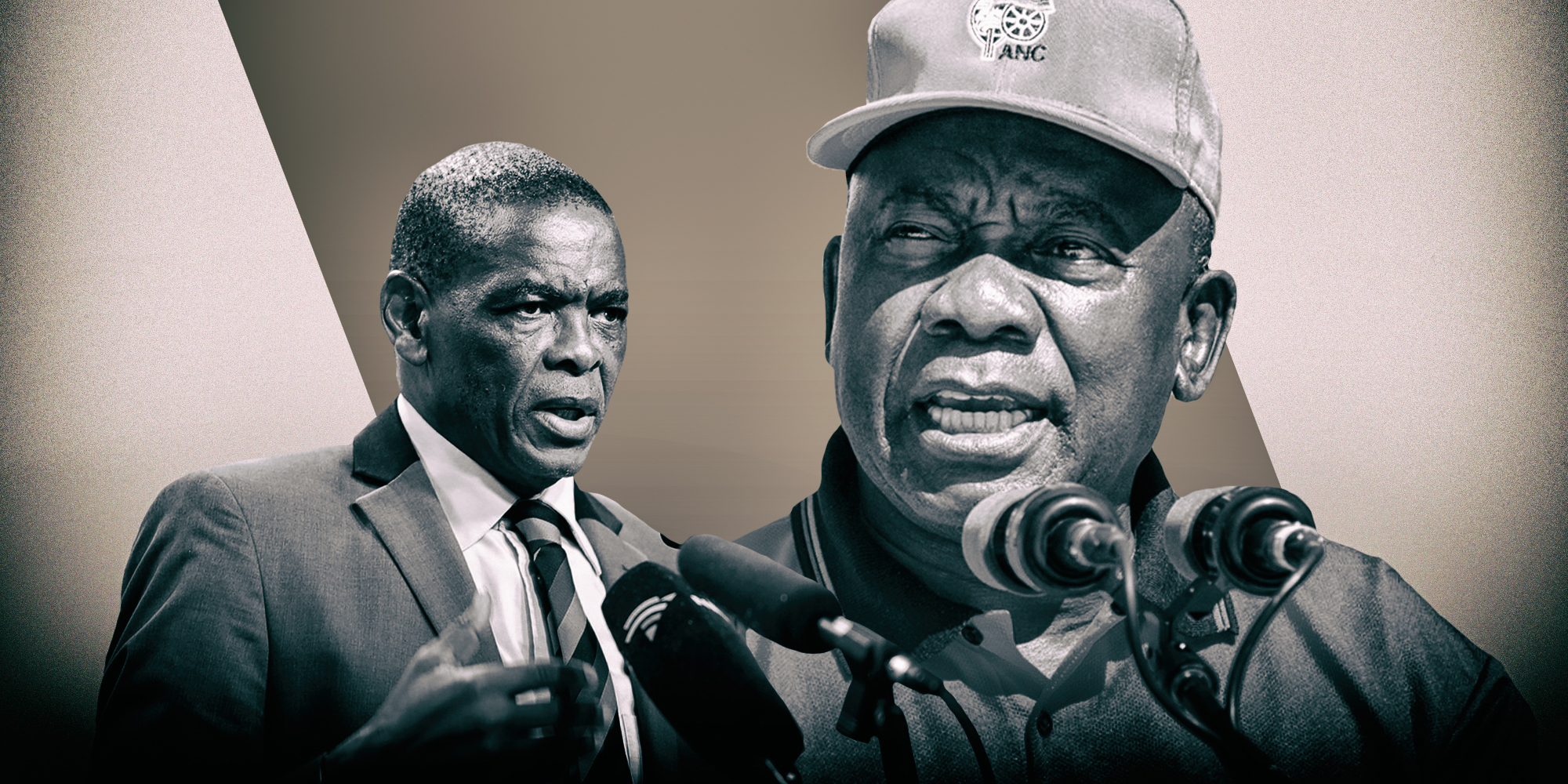The Covid-19 pandemic with its ricocheting impacts on the life and well-being of South Africans is a make or break period for Cyril Ramaphosa’s presidency.
He chose his first big political address of the year, the ANC’s annual birthday January 8 statement, to make three big bets to ensure the party makes it. He reiterated a tough stance on corruption in the ANC, raised the prospect of a basic income grant and threw his weight behind a national health insurance scheme.
While party secretary-general Ace Magashule is pretending that he is not facing corruption charges and that the Integrity Commission has not called for him to step aside, Ramaphosa raised the spectre of a suspension. He did not name Magashule, but said:
“We reiterate… that every member accused of, or reported to be involved in, corrupt practices should account to the Integrity Commission immediately or face disciplinary processes.
“Members who fail to give an acceptable explanation or to voluntarily step down while they face disciplinary, investigative or prosecutorial procedures, will be summarily suspended,” said Ramaphosa. The implication is clear.
The Integrity Commission has called for the party’s national executive committee to ensure that Magashule steps aside, but the strongman has not done so after almost a month. He is back in court on corruption and other charges in February.
Covid-19 will shape Ramaphosa’s presidency. He said the second wave of infections battering South Africa could cause more deaths than the first. And he confirmed that a vaccination programme would soon start jabbing arms but did not add more details. However, he warned against misinformation about the injections widely believed to be the only way to end the pandemic by ushering in herd immunity.
“We need to actively counter the spread of disinformation relating to Covid-19 and unfounded conspiracy theories about the virus, its treatment and the development of vaccines.”
Almost three million of the poorest paid South Africans have lost their jobs and while Ramaphosa did not clear up whether the Covid-19 grant will continue to be paid after it runs out at the end of January, he did raise the issue of a permanent basic income grant as a necessity.
“As these emergency measures come to an end because of our limited resources, we need to intensify other poverty alleviation measures… This year, the ANC, government and broader society will need to continue discussions on the desirability and viability of a basic income grant to provide a social safety net to the poor.”
This week, the ANC government brought forward its vaccine strategy by four months, after a slow start criticised by the country’s leading doctors and scientists. Later this month, the first tranche of Oxford/AstraZeneca jabs will arrive from India’s Serum Institute and be administered to 1.2-million health workers who accept them. The vaccine finance plan is likely to be a public-private partnership where medical schemes pool portions of their reserves (which have ballooned through Covid-19 because people, in the main, did not seek treatment for other conditions) with government and philanthropists.
This partnership could lay the foundation for a national health insurance (NHI) scheme which Ramaphosa also highlighted.
“The Covid-19 pandemic has underscored the need to accelerate the process towards the establishment of the NHI, which will reduce the huge inequalities and inefficiencies in our health system. It will ensure that all South Africans receive the treatment and care they need regardless of their ability to pay,” said Ramaphosa. The NHI faces several legal challenges, and the draft legislation to establish it is still before Parliament.
The public-private sector cooperation to enable Covid-19 hospital treatment and the upcoming vaccine plan suggests a less fractious path to an NHI may be possible.
If Ramaphosa succeeds in his big three bets, then the unprecedented challenges may serve him well. But the rest of his January 8 address also revealed how it might unpick his presidency.
The ANC government moves at a snail-pace, and in 2020 essential economic reforms hit the skids. There is no clarity on land reform although Ramaphosa said a constitutional amendment to provide a framework for expropriation would be completed this year. The auctioning of the spectrum to bring down the cost of data is way behind schedule. The infrastructure-led growth plan has met with tepid support by business while new and tough localisation targets make foreign investors (which South Africa needs) jittery. Yet, Ramaphosa continued to tout both as key planks of an economic recovery plan. If he does not ignite the economy, then Covid-19 can be the president’s undoing.
In April, the ANC will have been in office for 27 years – a full generation, and it faces a tough local government election should it go ahead this year. “Let us not be paralysed by the complacency of incumbency,” warned Ramaphosa. “In this the 27th year of democracy, the ANC cannot campaign on a platform that simply recounts the glories of the past.” DM
South Africa
Ramaphosa makes three big bets: Ace Magashule suspension, a basic income grant and NHI





